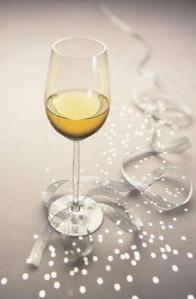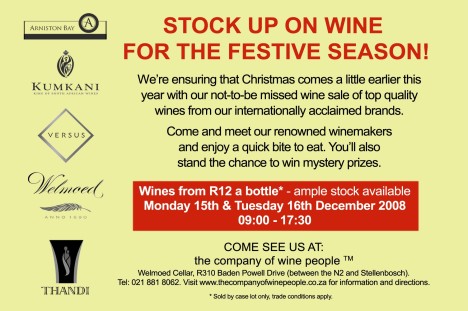
The holiday looms, and so does Christmas. All you want to do is chill out after what’s been a hard year. But that’s not always the easiest thing to do – you know the bit about life being “the thing that happens while you’re making other plans”.
For some, chilling out may mean booking a camping site 20 km from the nearest village a year in advance. Or going into a Trappist monastery until the festive season is over.
But most people will have a more sociable time – either at home, visiting relatives, or at the seaside somewhere. Who knows, you might need to get back to the office in January to get some rest. In order to get the most out of your break, try and avoid the following festive season stressors.
Guests galore. You have a big house, and over Christmas it fills up with aunties, grannies, nieces, uncles – you name it. Instead of looking after four people, you are now looking after twelve. This is no holiday for you, as you are the unofficial entertainment committee, the caterer, the conflict resolution specialist, and the local cleaner. If you live in a popular destination, you might have to put your foot down. Or at least put together a duty roster for the cooking and the cleaning. And, for heaven’s sake, don’t feel you have to be the unofficial tour guide. Take a day or two off and let the guests entertain themselves.
Feeding frenzy. Food, food, food. It’s all over during the Christmas season and it’s lying in wait for you everywhere, and we’re not talking about celery sticks either. It’s chips, cakes, cheese snacks, chocolates, to name but a few. And, after all, you’re on holiday. So why not? That’s fine, but just don’t get into a new habit. Most people end the festive season with quite a few kilos that were not there in November. Don’t become a festive season fatty.
Booze bonanza. From the office party to friends’ homes, to family barbecues – booze is no stranger to the festive season. And often, other people are paying for it. By all means have a beer or two, if you’re not driving, but don’t binge on booze. Drinking too much is something that carries its own punishment with it, a bit like eating that second helping of hot Indian curry. And do remember, that everyone likes you to have a drink or two, but nobody likes having a social embarrassment at their parties. Fall down drunk, or insult one of the other guests, and you can be sure you’ll be off the party list. Forever.
I’m so lonely. Some people wish everything could be a little quieter. Others wish for a break from the peace and quiet and they dream of the phone ringing or a horde of guests arriving. The secret is to arrange a few things in advance. Invite people for supper, get a friend to go with you to a movie, or organise a day or two away in a different place. Don’t wait until the festive season is upon you before doing something about your social calendar. It’s not going to happen by itself.
Exercise inertia. Most people give their exercise regimes a break during the festive season. It is, after all, the end of the year. Problem is, many people overindulge completely on the food front at the same time, and coupled with a fortnight of couch-potato-ism, your waistline might be expanding at the rate of knots. Go for a walk with the family, run along the beach, play volleyball. Do anything to burn up those extra calories. And get back into it early in the new year.
Credit card crisis. The last of the Big Spenders. If that describes you in the shopping centre with your Christmas bonus and your credit card, you’re obviously a sucker for all those Christmas ads. And you’re going to be stony broke in January, and depressed in February when the credit card statements start arriving. Point is that you can probably buy just as nice a present for R100 as you can for R200, or R400. You just need to plan it well. It’s the thought that counts, not the size of the present.
Sunburn stress. The sun in the southern hemisphere is vicious , and skin cancer is a real danger. And remember that the damage is cumulative. Burning yourself to a crisp or having a whimpering and sunburnt child on your hands, is no way to spend Christmas. Speak to your pharmacist and get a high-factor sunblock before you head for the beach. And speaking of the beach – watch out for bluebottles or pieces of broken glass in the sand.
Crowd control. Think of Christmas, and what many people see are teeming masses of people in a shopping centre, all of them with a mission, and accompanied by at least two unwilling and exhausted kids. It can be avoided – do your gift shopping in November and do a bulk grocery shop before 15 December. Milling crowds can be exhausting, and elicit everything but the Christmas spirit in you. In fact, it can bring on a bout of trolley rage.
Gift of the grab. Frantic last-minute gift-buying is a killer – not only don’t you get what you are looking for, you also spend a fortune on it. Rather than give unwanted and expensive presents, go for gift vouchers – at least people will appreciate them, even if they are not the most personal of offerings.
Family fest. Family. You get them, you don’t choose them. And never is it more obvious than at Christmas time when Uncle Freddy is holding forth on all his achievements, or Aunt Doris is slurring after her third beer. Or your cousin’s kids are running around screaming, chasing your poor cats. Then there are the endless questions about when you are going to tie the knot, have babies etc. Family get-togethers seldom do much for your self-esteem. Just repeat the mantra, “It will soon be over for another year.”
Source:
Filed under: Uniquely South African, Wine & Dine, women | Leave a comment »















